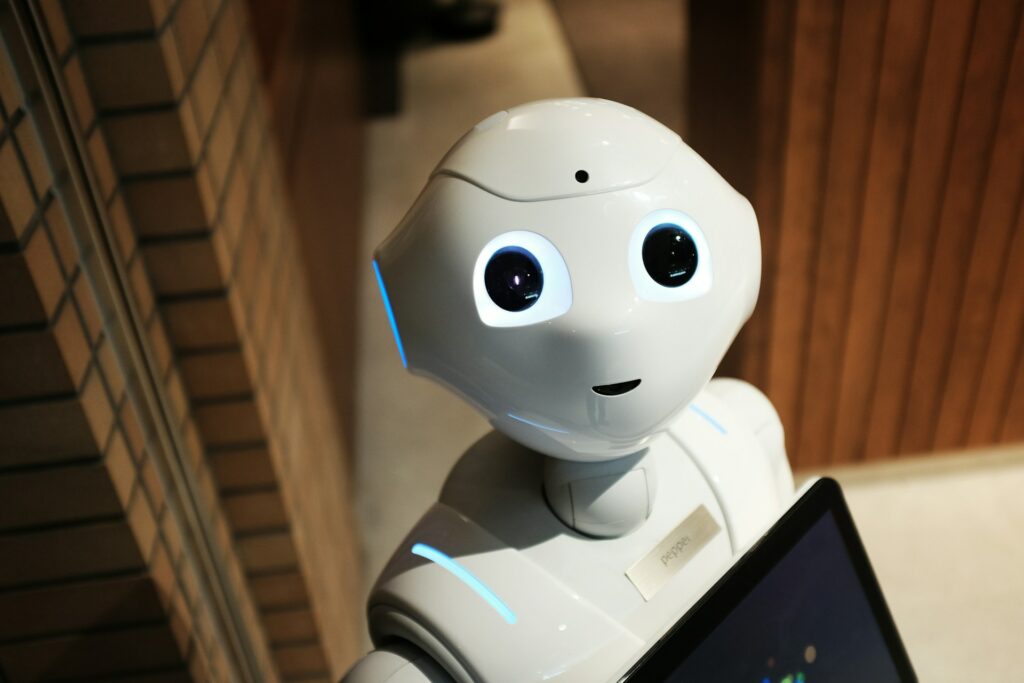Why Artificial Intelligence Is Becoming the Operating System of the Future

Why Artificial Intelligence Is Becoming the Operating System of the Future
Windows, macOS, and Android are examples of well-known operating systems that come to mind when we think about operating systems. Operating systems are the software layer that enables us to connect with our various electronic devices. A new form of “operating system” is evolving, however, and it is happening in a stealthy and quick manner. This “operating system” is not limited to displays or particular gadgets. It is wise, it is continually gaining knowledge, and it is often undetectable. An artificial intelligence (AI) system is the new system in question.
Artificial intelligence is increasingly controlling how we interact with our whole digital world, shifting from its previous role of just executing applications and maintaining information. Artificial intelligence (AI) is increasingly operating as the brain behind the scenes, functioning as the intellectual layer that lets everything work together flawlessly. This can be seen in a variety of fields, including personal productivity, smart homes, healthcare, and transportation.
From being a fun feature to being the foundation of our digital life, how did artificial intelligence get to that point? What exactly do we mean when we claim that artificial intelligence is going to be the operating system of the future?
Now More Than Just a Tool, Artificial Intelligence Is the Platform
It was initially a characteristic of AI. Whether it was auto-suggestions in search, facial recognition in photographs, or voice assistants like Siri and Alexa, the majority of respondents considered it to be an add-on, which means that they found it useful but not necessary.
That has changed as of today. Artificial intelligence has transitioned from a supporting function to a critical one. A significant number of the systems that we now depend on, such as recommendation engines, fraud detection, intelligent assistants, targeted advertising, and even traffic flow in cities, are all constructed using intricate artificial intelligence models. These models are not only atop an operating system; rather, they are responsible for the operation of whole ecosystems.
Artificial intelligence does not need a keyboard or touchpad in this sense. It is continually learning, developing, and making judgments on your behalf, adapting to your voice, your behavior, and the situation in which you find yourself.
AI is already being integrated into everyday devices.
An increasing number of electronic items, ranging from cellphones to refrigerators, are being outfitted with their very own autonomous decision-making capabilities. It is no longer sufficient for a phone to just show applications; it now also determines which applications you use the most, changes the brightness depending on your pattern, and even optimizes battery life by anticipating your routine.
Your smart speaker does more than simply play music; it also learns your preferences, predicts your schedule, and connects with the rest of your smart home setup. When it comes to improving driver safety, even your vehicle is becoming a node in this network driven by artificial intelligence. It is providing features such as predictive navigation, adaptive cruise control, and even emotional recognition.
There is no longer any connection between the operating system and the gadget. Intelligence is the glue that keeps everything together, and it can be found everywhere.
Delivering Personalized Experiences on a Scale That Is Unrivaled
The traditional operating systems are intended to be consistent with one another. On the other hand, AI-driven systems are a really personal experience. It is not enough for them to just react to stimuli; they also anticipate it. By seeing how you search, where you go, what you say, and how you say it, artificial intelligence can learn. Content is curated, alerts are filtered, and it may even modify interfaces depending on your mood or the situation in which you are now operating.
Consider how Spotify generates your Discover Weekly playlist or how Netflix anticipates what you would want to watch next on your streaming service subscription. The next step is to use that same intelligence to your whole digital existence. Every aspect of your life, including your schedule, your emails, your health information, and even the temperature of your room, is automatically tailored for you.
Without artificial intelligence serving as the new core intelligence layer, it is impossible to achieve that degree of customization. AI may be thought of as a form of operating system that extends beyond devices and applications and into every aspect of your experience.
The incorporation of AI is causing productivity and work to shift.
Artificial intelligence is redefining what it means to operate productively in the professional world. There are several applications of this technology, some of which include intelligent email sorting, automated scheduling, transcribing services, and real-time language translation.
Reengineering enterprise software to work on artificial intelligence platforms is becoming more common. In the process of integrating directly into everyday processes, platforms such as Microsoft Copilot, Google Gemini, and CRMs supplemented with artificial intelligence are functioning more like collaborators than tools. They are able to analyze large volumes of data in a matter of seconds, which allows them to summarize meetings, prepare reports, and even provide strategic insights.
This transformation is not just increasing productivity; it is also changing what it means to contribute to the cause of productivity. In the future, artificial intelligence will not just assist you in using your smartphone. This will assist you in thinking, planning, and creating.
Artificial Intelligence as the Unseen Operating System of the Future
The fact that this progress is for the most part unnoticed is what makes it genuinely revolutionary. AI is not accompanied with a startup sound or an icon that appears on your screen. Not only is it not something that you open, but it is also something that is continually functioning in the background, naturally, and always adjusting to new circumstances.
In many respects, it functions in a manner that is analogous to that of a biological nervous system, having the ability to detect, react to, and coordinate activity without the need for conscious guidance. Your digital twin, your assistant, and your co-pilot are all wrapped into one with the artificial intelligence operating system (AI OS), which is becoming less of a product and more of a digital presence as it extends across devices and apps.
Exactly What Does This Imply for the Typical User
For the vast majority of individuals, this transition will not feel like a profound progression. Instead, it will be a progressive process, with a smarter phone here, a more responsive automobile there, and a house that is aware of when you are chilly or when you forget to lock the door.
However, a significant change is taking place behind those seemingly little moments. Your computer’s operating system is no longer only a piece of software that runs the machine. Intelligent, contextual, and fully interwoven into your life, it is artificial intelligence (AI).
There is a possibility that the devices you use will change. There may be changes in the platforms that you favor. However, the artificial intelligence will continue to be at the core of everything, learning from every encounter and enhancing every experience.
One more thought: we are already fully immersed in the future.
The concept that artificial intelligence would “one day” rule everything is no longer considered sci-fi. Learning your routines, organizing your life, safeguarding your identity, and powering systems all around you are all things that are already present in your life.
It is possible that in a few years, we may no longer consider operating systems to be something that is booted up. Rather than that, they will just be there because they are flexible, sensitive, and driven by intelligence. And that, in many respects, is the true potential that artificial intelligence holds. For the purpose of not just making technology more intelligent, but also of making our lives easier, more connected, and more streamlined.




